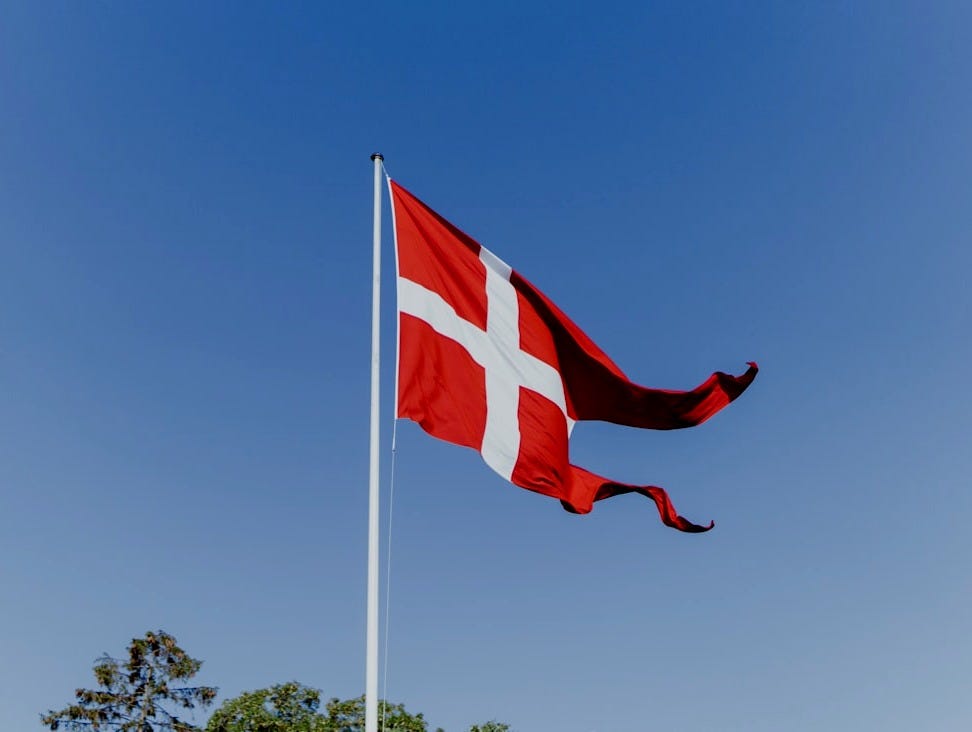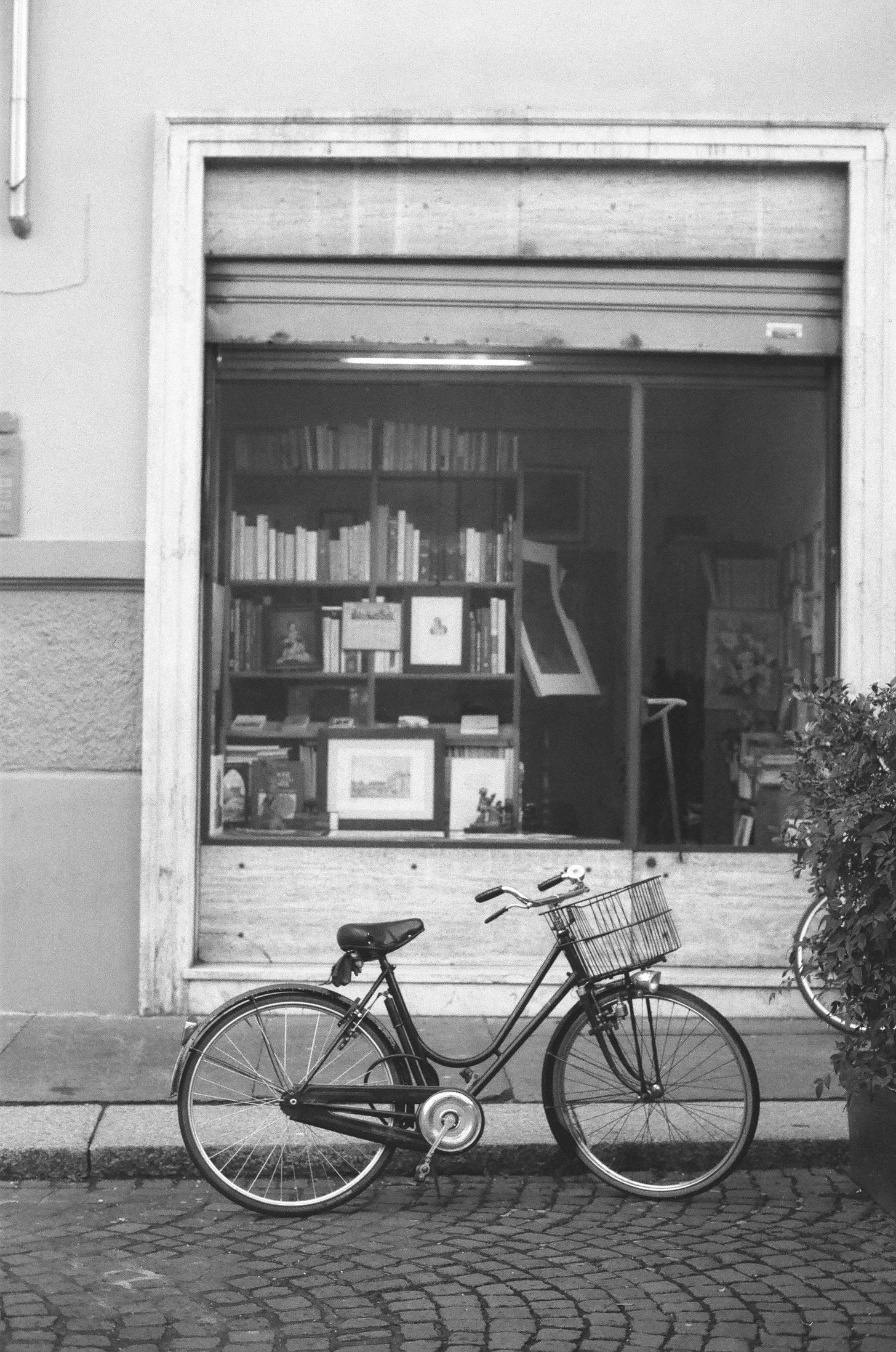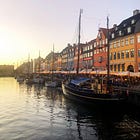Second post about life in Denmark, because one, simply isn’t enough.
Did you land in this post without having read the first part ? Worry not, you can find it
here 👇👇
When the first post was finished, I had a feeling it was incomplete. It touched some important points about life in Denmark, but as with any other country, there is so much more to unpack. Flags, hygge, club culture, cycling culture, all deserve a reference of their own.
Flags
Flags?? Yes, flags. In many countries, especially in Europe, waving a flag of your own country has negative connotations. Whether that is right or wrong, it is not relevant here. The bottom line is that, it is associated with nationalism. As a result, most people will openly show off their country's flag only on national days, or when the national team is playing.

Not in Denmark. Dannebrog1, is everywhere. On food packaging. In stores. In airports, where people are waiting for their loved ones with a flag at hand. There are even restaurants that provide the option to add a Danish flag on your table, just ‘cuz2. And if you ever happen to be invited in a birthday party, you will know that flags are a must. No flags, no party.
Why is that interesting?
Demonstrating the flag in every occasion is a sign that Danes are very proud of their country. That on its own is not necessarily so intriguing; many nationalities share that sentiment. What makes it interesting is that Danes are not trying to hide it.
Danes are proud to be Danes and they will make sure to let you know.
Club culture
Club culture was also mentioned in How to make friends in a new place:
Denmark has a deep-rooted club culture. In 2017, 90% of the population was a member in at least 1 club. Don't think only of sports clubs. Those are only a part of the whole club universe. There are board game clubs, book clubs, parenting clubs and whatever else you can imagine. Basically any interest you have, you can turn it into a club. If you cannot find a club you like, you can always start your own.
For every hobby or group of people, there is a club. The club universe is practically infinite. Parent clubs, painting clubs, running clubs, argument clubs. The list is endless and it is a huge part of the Danish culture.

If you think that the club culture is too much, then you should know that it is part of an even broader culture, that of associations. Danes will get organized and unionize on many aspects of daily life. A common example, is a homeowner's association. Apartment (or house) owners will come together to form an association, which will then take care of matters on behalf of everyone. The association will arrange regular maintenances, cleaning and will even negotiate prices with tradesmen.
Cycling culture
Cycling is a big part of Danish culture and you will notice it the moment you set foot in the country. People cycle to work, to drop of their kids3 and to meet their friends. Kids will start biking as early as possible and according to denmark.dk4, cycling accounts for 21% of trips under 10 kilometres and 15% of all trips. Denmark even has a Cycling Embassy.

What makes however cycling in Denmark unique, is that it is decoupled from social status. Riding a bike does not mean you cannot afford a car. Biking is a way of life and everyone is part of it. Everyone bikes. Everyone. From homeless people to CEO’s, no one is too good not to bike.
To my knowledge, the only other country where that is the case, is the Netherlands.
Group over individual & Homogeneity
In Denmark, the group takes precedence over the individual. Period.
Collectivism is expressed in many aspects of daily life, such as taxes or healthcare: everyone pays high taxes, so that everyone has a decent standard of living. A second order effect, is the drive of people to not stand out, but to blend in instead. That can be seen in clothing, home design, even the club culture mentioned above. This comes in contrast to the, otherwise capitalistic, society, where the individual tries to stand out, be the best.
The country’s small size, plus the effort to blend in, produce a quite homogeneous society. With a population of less than 6 million people, and with about 1 million living in the capital, most people live in small cities. That makes the international element quite weak in most places outside Copenhagen. In other words, even though most people are fluent in English, Denmark is still very… Danish.
Homogeneity's evil little sister is racism. Blaming our problems to whatever and whomever is different from us, is a world-known hobby. In a society that is very homogeneous, that hobby finds the perfect ground to thrive. Danish politics is proof of that: even though there is a clear need for immigrants to keep the economic machine running, immigration policies constantly become stricter. A vivid example was when, a few years back, the country decided to shut down many international study programmes, in an effort to appeal to conservative voters. A decision that was soon to be reversed, after labor shortages became evident5.
So, even though socialism is the prevailing political system, when it comes to immigration, the implemented policies are shifted towards the far right. Partly, the extremity of those policies is limited by EU regulations.
Work-life balance
A subset of the homogeneity aspect, is work-life balance. “What do you do [for a living]?” is one of the first questions you will be asked when meeting someone. However, work is not in the center of everything. Both employees and managers, will focus on having a good balance between work and personal life. That means not working overtime, but also being able to leave early if one needs to pick up their kids or have a dentist appointment.
What does that have to do with homogeneity, you may ask. The answer is that again, people will not strive to stand out at work. Instead, they will strive to be good within the hours dictated by their contract. But not more than that. In fact, if you work overtime too often, your colleagues will likely try to steer you the other way. “It is 5 pm, go home”, or “what are you doing working so late” are not uncommon to hear. I cannot tell whether the motivation is not to make the rest look bad. In any case, the consensus is, to not sacrifice personal life for work.
By the way, such comments will come from colleagues and managers alike. Having an employee constantly working overtime, is also seen as a manager's failure to delegate work correctly.
Does that mean that everyone works exactly as much as contractually agreed?
No, especially in the private sector. What it means though, is that an employee has the right to speak up if they are overworked and that, by and large, their cries will be heard.
Hygge & hygge racism
Hygge was briefly touched upon in the first post about life in Denmark, but it deserves a more thorough elaboration. The closest translation in English is cozy, but it is more than that. Coziness is of course part of it. It is a feeling of safety, of comfort. It is about finding pleasure in the simple things, like food with friends, or a good book. It usually refers to indoors moments. It is also used as a verb; your Danish friends might invite you over to hygge together.
Hygge racism was mentioned in Valentina's answer to the expat questionnaire.
To use her own words:
Hygge racism is how they [Danes] may seemingly make innocent jokes about other nationalities, as if it was ok to do that, while in reality it is just toned down racism.
The sneaky characteristic that makes this type of racism part of hygge, is that it is disguised as a joke. If you are the one to point it out, then you are labelled the party-pooper, because you took it too seriously and ruined the fun; you ruined the hygge.
This is where flags, homogeneity and hygge meet; national pride is demonstrated through flags everywhere. Homogeneity enhances national pride. Finally, too much national pride, occasionally turns sour and is expressed as (hygge) racism.
- The Naive Ignorant
Is there something that stands out in the country where you live, good or bad? What stroke as different, when you first moved?
Page is unfortunately available only in Danish.
A shorter version of just because.
Yes, with their kids on the bike. It is very common to have an extra seat attached to carry a toddler or use a cargo bike.
This is by the way a really nice article about cycling in Denmark, if you want to read more about it.
The story also made it in multiple Dutch news outlets, as an example of what not to do.
If you liked this post, you might also like:







Learning the dark side of hygge feels like learning that Santa isn't real.
Interesting to read this "dark side" of Hygge.